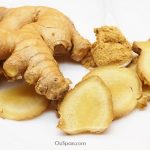
Takeaways
• Coffee is immensely high in antioxidants
• Coffee is associated with reduced the risk of some diseases
• Coffee is addictive
• 3-5 cups of coffee are considered a normal daily dosage.
You get up in the morning and go straight to the kitchen to make a cup of coffee. Your day does not start until you have had a cup of coffee. Does this sound like you? Don't worry, you are not alone. Over 2.25 billion cups of coffee are consumed per day, every day across the globe. That is a total of over 800 billion cups of coffee every year.
Coffee is beneficial for health - True?
There is a reason that coffee is as popular as it is; and no, it is not just because of its amazing taste. Coffee is immensely high in antioxidants and flavonoids. It contains multiple vitamins and minerals such as Vitamin B3, folates, manganese, potassium, magnesium and phosphorus. While the percentages might seem low at first, take into account that the average person consumes 3-4 cups of coffee a day, and the nutritive value reaches a substantial amount.
Coffee has also been linked to reduced risk of many diseases. Regular coffee drinkers are at a 65% lower risk of Alzheimer's and a 32-60% lower risk of Parkinson's diseases. Furthermore, the occurrence of type 2 diabetes is 23-67% lower in coffee drinkers than in non-coffee drinkers. Consumers of a daily cup of Java showed a lower risk of liver disease, a 20% reduction in depression and a 53% lower chance of committing suicide. What's more, the average life expectancy of coffee drinkers is also higher.
Wait, there is more! Coffee contains caffeine which is a stimulant. Caffeine increases your brain activity, reduces tiredness, and increases alertness. It revs up the metabolism by 3-11% and increases performance during exercise by 11-12%.
With all these benefits, it might seem as if there is no need for the benefits vs. harm debate; however, there are more causes for concern with coffee than may seem apparent at first.

Coffee is beneficial for health - False?
The same stimulant which improves brain function also causes symptoms of anxiety in regular drinkers. It can be a reason for sleep problems. Additionally, unfiltered coffee contains natural oil Cafestol that shown to increase cholesterol levels.
Furthermore, coffee is addictive. Regular drinkers, when denied coffee, might face kind of withdrawal symptoms as substance abusers. Coffee addiction doesn't have devastating effects on the mind, behavior, and physical health as other drugs or alcohol but might cause temporal mild depression, headaches, and irritability.
Coffee is beneficial for health - True or False?
It finally comes down to the same question. Is coffee beneficial or harmful? The answer is 'It depends'. Depends on what, you ask? It depends on the amount of coffee you have daily. Around 3-5 cups are considered a normal dosage. However, it is imperative to ensure that you do not get addicted to it. The easiest way to check it is to go coffee-free every couple of days or to follow a weaning and waning cycle with the amount of coffee consumed per day.
Another thing to keep in mind is to limit the use of sugar and milk; they have the power to negate a lot of the benefits coffee has.
In conclusion, there is no need to start drinking coffee if you don't consume it currently, and there is no reason to stop drinking coffee either!





